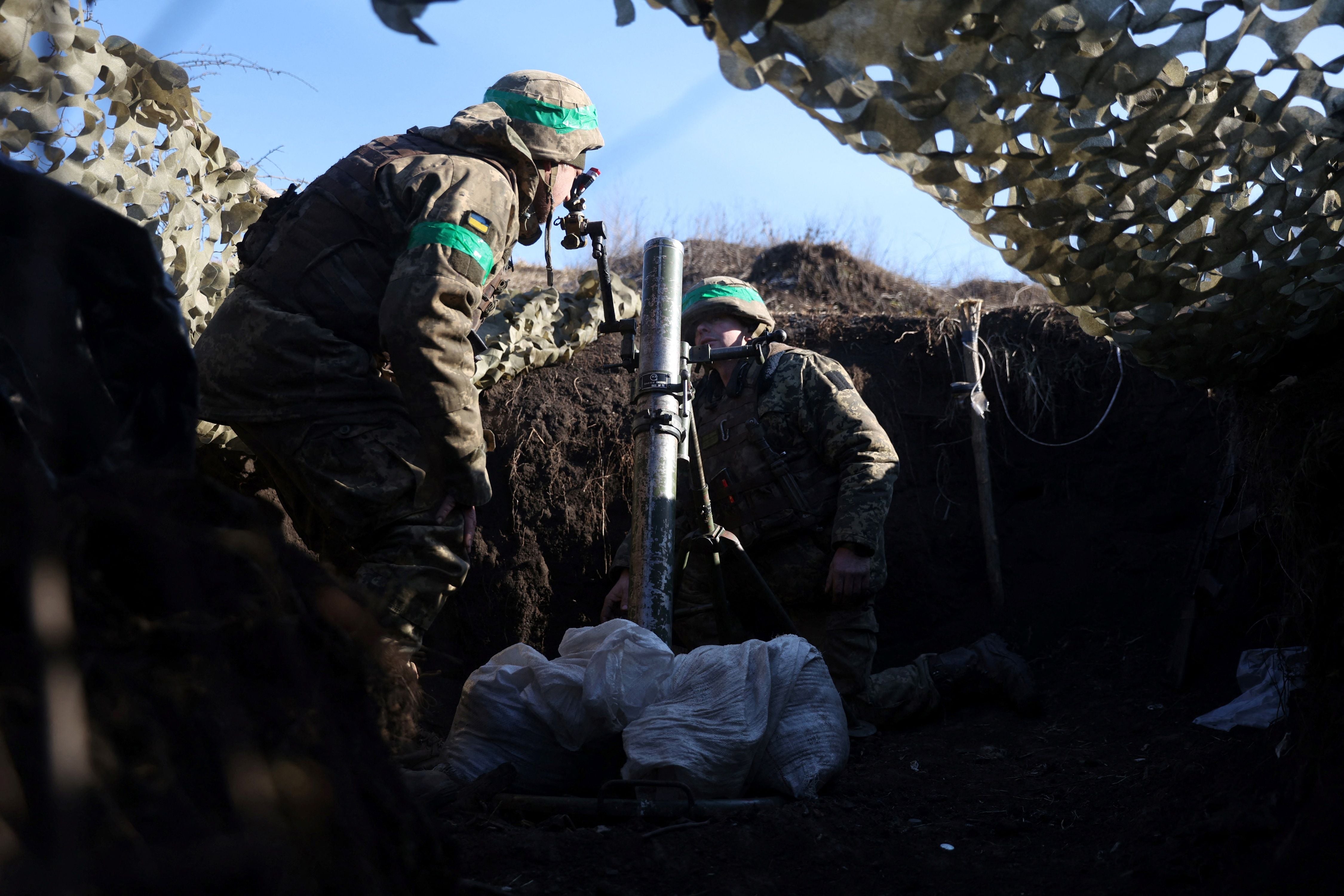Russian shells kill 10 in Ukraine as Putin’s forces seek gains before Western tanks arrive
Both sides are preparing to launch spring offensives

Russian shelling killed at least 10 Ukrainian civilians on Friday – the second day of bombardments by Putin’s forces after Western nations pledged to send military aid including modern tanks.
Moscow is trying to breach Ukrainian lines in the east and northeast ahead of the arrival of new weaponry from the United States, Britain, Germany and others.
Poland gave Ukraine a further boost on Friday by promising an additional 60 tanks on top of 14 German-made Leopard 2 tanks it had already pledged.
Both sides in the war are widely expected to launch spring offensives, but Washington has advised Kyiv against doing so until the latest weapons are in place and training has been provided – a process expected to take several months.
Russia said the United States was “pumping weapons into Ukraine”.
“Fierce fighting continues along the front lines,” said Kharkiv regional governor Oleh Syniehubov, adding that Ukrainian forces were holding out.
Oleskandr Musiyenko, head of the Military and Strategic Research Centre of Ukraine, said Russia was sending in more reinforcements, mainly conscripts, to block Ukrainian advances.
“But they do not have the level of artillery and tank support they had on 24 February,” Mr Musiyenko said.

British intelligence officials believe Russian forces conducted probing attacks near Orikhiv in southeastern Ukraine and in Vuhledar in the east, but were unlikely to have achieved “substantive advances”.
Kyiv also accuses Moscow of deporting children as well as adults from occupied areas and giving them Russian passports.
Filippo Grandi, the UN refugee agency chief, said this violated “the fundamental principles of child protection in situations of war” and that Russia must stop it.
Japan tightened sanctions on Friday, expanding an export ban list and freezing assets of Russian officials and entities.
But Ukraine’s hopes that the European Union will impose sanctions affecting nuclear energy were dealt a blow by Hungary, which said that it would veto such moves. Hungary has a Russian-built nuclear plant that it plans to expand.

Russia tightened its own moves against the West. Russian foreign minister Sergei Lavrov visited Eritrea on the last stop of a tour of Africa that was intended to shore up support and began in South Africa, which plans joint military drills with Russia and China.
Separately, a 74-year-old retired Spaniard was charged with terrorism on Friday for allegedly sending six letters containing explosive material to Spain’s prime minister and the US and Ukrainian embassies in the country.
The suspect, referred to only by the initials PGP, was charged with six separate terrorism offences. Spanish media reported that the suspect had links to Russia and was angry at Spain’s support for Ukraine.
Reuters and Associated Press contributed to this report






Join our commenting forum
Join thought-provoking conversations, follow other Independent readers and see their replies
Comments